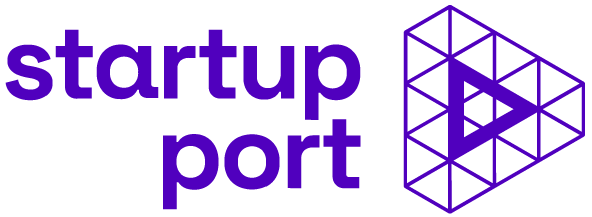The startup 3D Spark has enabled the railway technology company Alstom to achieve remarkable success in additive manufacturing, which has led to significant cost savings and shorter delivery times, which in turn has improved cash efficiency and the availability of spare parts. The resulting licence extension underlines the strategic value and importance of 3D Spark’s B2B platform for production and procurement in the railway sector. In addition to Alstom, the B2B SaaS startup now cooperates with various leading industrial companies, including Deutsche Bahn, ZF Friedrichshafen and Germany’s No. 1 tourist attraction, Miniatur Wunderland, which are already among the licence customers and underline the growth potential and market relevance of the software solution. The founders of 3D Spark were mentored from 2021 to 2022 as EXIST start-up fellows by Prof. Dr Jens P. Wulfsberg and Dr Tobias Redlich at the Laboratory of Production Engineering (LaFT) at Helmut Schmidt University/University of the Federal Armed Forces Hamburg. Startup-Port founding consultant Felix Krieg has been supporting the team with advice and assistance for over three years.
Alstom, the world’s second largest railway technology company, and 3D Spark, an innovative provider of B2B manufacturing and procurement software, have announced the extension of their partnership for a further three years. This extension represents an expansion of a collaboration that has already resulted in cost savings of €15 million, a 2,600 month reduction in delivery time and an 86 per cent reduction in procurement effort, setting new benchmarks for manufacturing and procurement in the rail sector.
The partnership demonstrates how advanced algorithms and AI-driven tools can significantly increase efficiency in parts manufacturing and procurement. With 3D Spark’s integrated solution, Alstom has advanced its “Design To Print” initiative, enabling more than 170 users to quickly and effectively identify the most cost-effective, fastest and most sustainable production options.
Digital factory twin enables manufacturability check and cost calculation
On the production side, the implementation of the 3D Spark solution resulted in an 80 per cent time saving in manufacturability checking (DfM) and quotation generation, minimising iterations, interactions and therefore bottlenecks. These efficiency gains have not only accelerated the production process, but also improved Alstom’s ability to efficiently identify parts that can be printed in-house, resulting in better machine utilisation (CAPEX).
Make-or-buy decision support with optimised purchasing process
On the purchasing side, Alstom is aiming to reduce purchasing costs by 86 per cent, in particular by minimising unnecessary requests for quotations (RFQs). This strategy is made possible by 3D Spark’s “Make or Buy” decision aid. The software helps assess in-house manufacturability and manufacturing costs against purchase prices and lead times, eliminating the need for unnecessary RFQs when in-house manufacturing makes more sense.
When sourcing is more favourable, 3D Spark’s “Supplier Panel” facilitates the selection of suitable suppliers by providing a complete list of all qualified Alstom suppliers and assists by assessing manufacturability, automating the determination of supplier target prices and sending RFQs with one click, ensuring a targeted and efficient procurement process for buyers and sellers. This strategy has led to a 20 per cent reduction in component purchase prices, highlighting the cost benefits and efficiency gains achieved on both sides.
More sustainable manufacturing decisions with carbon footprint calculation
A key focus of this partnership is the focus on sustainability – a core business value of both partners. The introduction of a feature to automatically calculate 3D Spark’s carbon footprint for each production option without additional effort underlines Alstom’s commitment to sustainable production decisions. The calculation covers 3D printing technologies for polymers, metals and ceramics as well as metal casting, injection moulding, milling and turning and supports Alstom in complying with EU directives such as CSRD and CBAM. It also saves 80 to 100 euros per tonne in certification costs, with savings likely to increase as regulations become more stringent.
Trains in use for up to 50 years: digital production ensures spare parts availability
Aurélien Fussel, 3D Printing Program Manager at Alstom, expressed his satisfaction with the impact of the partnership: “Our collaboration with 3D Spark has been a key factor in Alstom’s success in additive manufacturing and the success of our DesignToPrint programme. This partnership not only supports our innovation goals, but also contributes to our commitment to sustainability and operational efficiency. We look forward to further expanding our leadership position in the industry and setting new benchmarks for excellence in digital manufacturing.”
Ruben Meuth, co-founder and CEO of 3D Spark GmbH, said: “In an industry where trains are in service for up to 50 years, successfully managing spare parts and obsolescence challenges is paramount to train reliability and punctuality. Leading railway operators require 10%+ of train parts to be 3D printable to enable digital warehousing and spare parts on demand. 3D Spark is positioning itself as a key solution provider to fulfil this requirement and drive innovation. This 3-year contract extension with Alstom reinforces our shared vision of a sustainable, digital manufacturing future in the railway sector.”
Alstom and 3D Spark aim to further expand the use and applications of additive manufacturing at Alstom and in the railway sector. The focus will be on developing innovative components, optimising spare parts production and reducing procurement costs and CO2 emissions.
About 3D Spark:
3D Spark’s mission is to maximise efficiency and minimise resource waste in industrial production. The company offers an innovative, web-based, AI B2B SaaS solution. Originally tailored to industrial 3D printing and now extended to casting, injection moulding, CNC and more, the software optimises manufacturing, purchasing and sales processes. By analysing 3D CAD and 2D data, the platform identifies the cheapest, fastest and most sustainable manufacturing process. It also automates the creation of quotations and facilitates well-founded make-or-buy decisions. In this way, 3D Spark increases production efficiency and sustainability for its customers.

